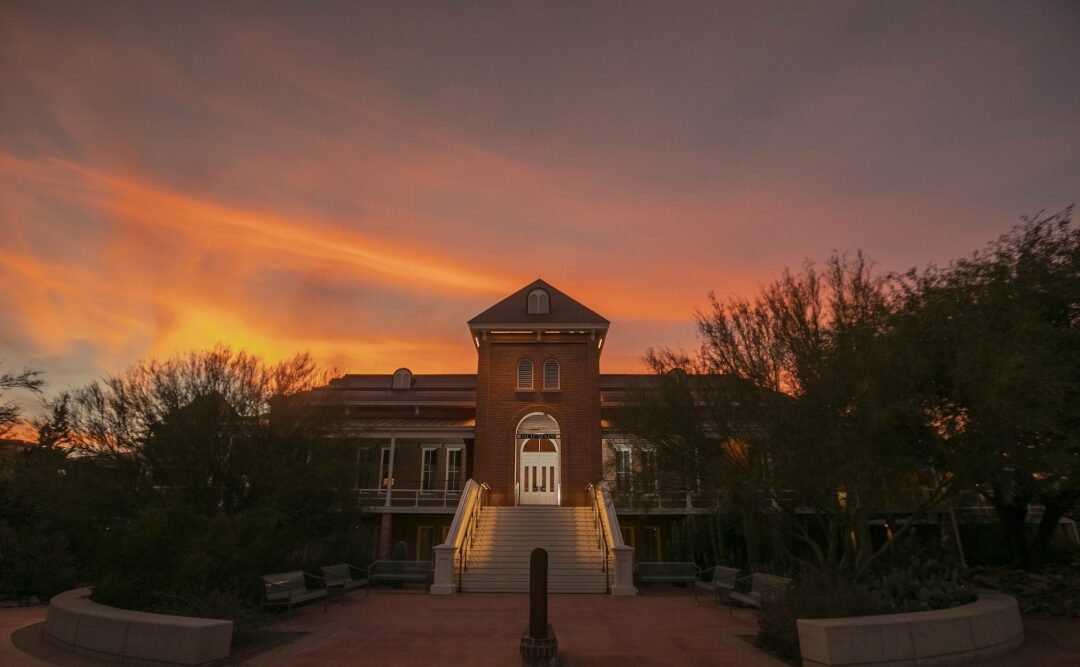The University of Arizona will expand its outreach efforts to students and their families – especially Spanish-speaking families and families who don’t traditionally send children to college – thanks to a pair of grants totaling $650,000.
Both grants come from Arizona’s Technology and Research Initiative Fund. The fund was established by Arizonans who voted for Proposition 301, which uses sales tax revenue to fund the state’s public schools, vital research at Arizona’s public universities and issues critical to the state, including workforce development through access to college.
The largest of the two grants, at $500,000, will help the university reach out to more parents and families of prospective students to help them learn about the opportunities they have to attend college. Another grant, for $150,000, will bring young students in Southern Arizona to campus for a day of programming and a tour.
Both grants contribute to the mission of the Arizona Board of Regents’ Arizona Promise Program, which covers tuition and fees for students from low-income families whose federal Pell grants or other financial aid don’t cover the cost of college tuition and fees.
“A college degree opens the door to a bright future of opportunity and possibility. These grants will help Arizona students and families, especially those from underserved communities, open that door and learn more about how to prepare for and access the University of Arizona,” said ABOR Chair Lyndel Manson. “I applaud these efforts to reach more families through targeted outreach and awareness, making the university even more accessible to our Arizona residents.”
As part of the larger grant, the university will scale up existing family outreach programs or add parent and family components to other outreach programs.
“Being able to help parents understand the importance of planning for college early is critical so that they can know about the opportunities, help their students stay on track and even know what questions to ask,” said Kasey Urquídez, UArizona vice president of enrollment management and dean of undergraduate admissions. “That’s really a huge part of what we want to do.”
One program slated for expansion is College Academy for Parents, which helps families of K-12 students plan for college. Currently a partnership with Tucson’s Sunnyside Unified School District, the program will expand to include other school districts in Pima County and Maricopa County.
The funding will also help the university reach more Spanish-speaking families by allowing Urquídez and her team to invest in Spanish marketing materials and to hire more bilingual student employees, who often interact directly with prospective students and their families at outreach events.
“We really want to focus on those families, those areas, where language might be a barrier, and they haven’t had the opportunity to understand because the information has mainly been in English,” Urquídez said. “We want to give support where the support is needed by helping provide the exposure that they might not have access to as early on as they want it.”
The grant will also help improve the university’s digital offerings to reach families, including the Start Now and Empieza Hoy websites, which provide information about early college planning, financial aid resources and more. Start Now is the English version of the site, and Empieza Hoy is in Spanish.
The $150,000 grant will support the creation of a new program, called the Arizona Road Trip, that will bring between 2,500 and 3,000 potential future college students to campus in one academic year. The program is a partnership with the university’s A Center, an advising center that helps UArizona students who have not yet declared a major find their academic fit.
Being able to increase support for families interested in sending their children to college strikes a personal chord for Urquídez, whose daughter, Maricela, graduated in May with a Bachelor of Arts in elementary education. Her son, Antonio, will begin classes at UArizona in August.
As a first-generation college student from rural southeastern Arizona, Urquídez knows the significance of that support firsthand.
“I think it’s so critical to just get the awareness out there – I didn’t know I was coming to the U of A until I graduated from high school and found out I could actually afford and do this,” she said. “Applying to schools is one thing, but actually enrolling is so different, so being able to help families understand that much earlier makes such a difference and takes away some of the stress and confusion, so they know college is an option.”
By: Kyle Mittan, News Writer, University Communications, The University of Arizona
mittank@arizona.edu 520-626-4407

